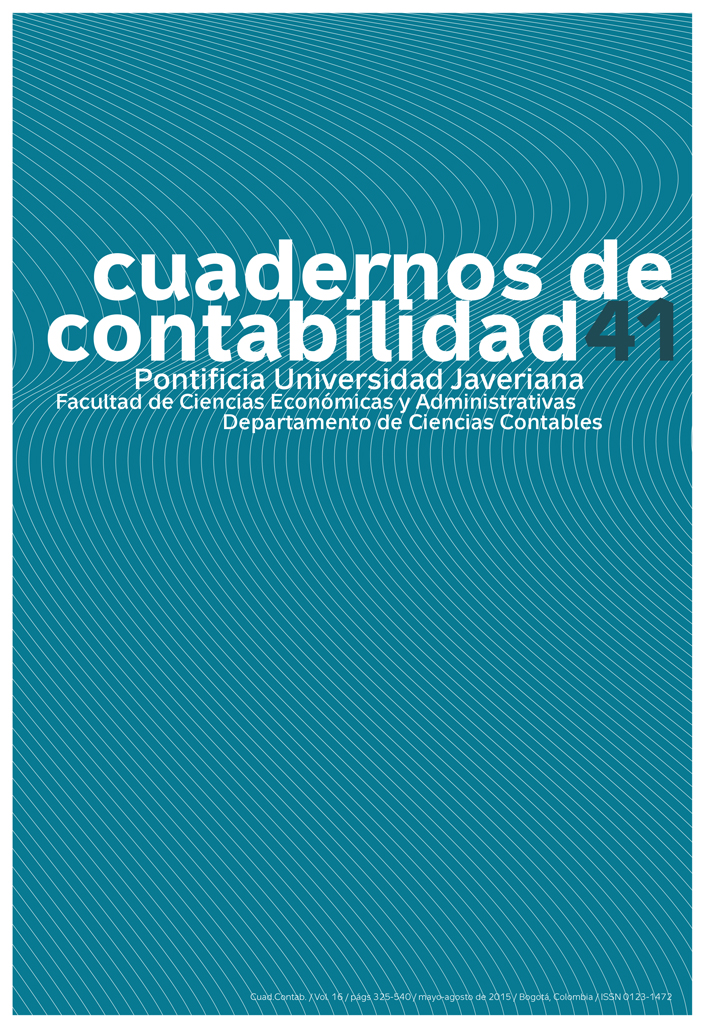Abstract
This article subscribes to the argumentative line
of interdisciplinary studies on corporate reports, with an emphasis
on the corporate self; such is the reason behind delving
into the question: How are annual accounting reports used
to create the “self” of the modern economic organization,
in the contemporary frame? As a consequence, from an interpretative
perspective, we turn to Lacanian psychoanalysis
—together with the appropriation of conceptual categories
created in the bosom of contemporary sociology and philosophy—
in order to identify the characteristics on which
the development of the “self” and subjectivity are based
in the space of contemporaneity. The purpose behind this
is to make understandable the constituting role of annual
accounting reports beside the economic and communicative
dimension they are subscribed to today. In this way, we
address and characterize, based on the case of a Colombian
company, the mechanisms that make the annual accounting
reports mirrors of identity that provide support to the institutionalization
of the organizational “self”. At the same time,
they work showing the text that makes of modern economic
organizations as if they became a kind of “corporate citizens”.
El aval sobre la intervención de la obra (revisión, corrección de estilo, traducción, diagramación) y su posterior divulgación se otorga mediante una licencia de uso y no a través de una cesión de derechos, lo que representa que la revista y la Pontificia Universidad Javeriana se eximen de cualquier responsabilidad que se pueda derivar de una mala práctica ética por parte de los autores. En consecuencia de la protección brindada por la licencia de uso, la revista no se encuentra en la obligación de publicar retractaciones o modificar la información ya publicada, a no ser que la errata surja del proceso de gestión editorial. La publicación de contenidos en esta revista no representa regalías para los contribuyentes.


